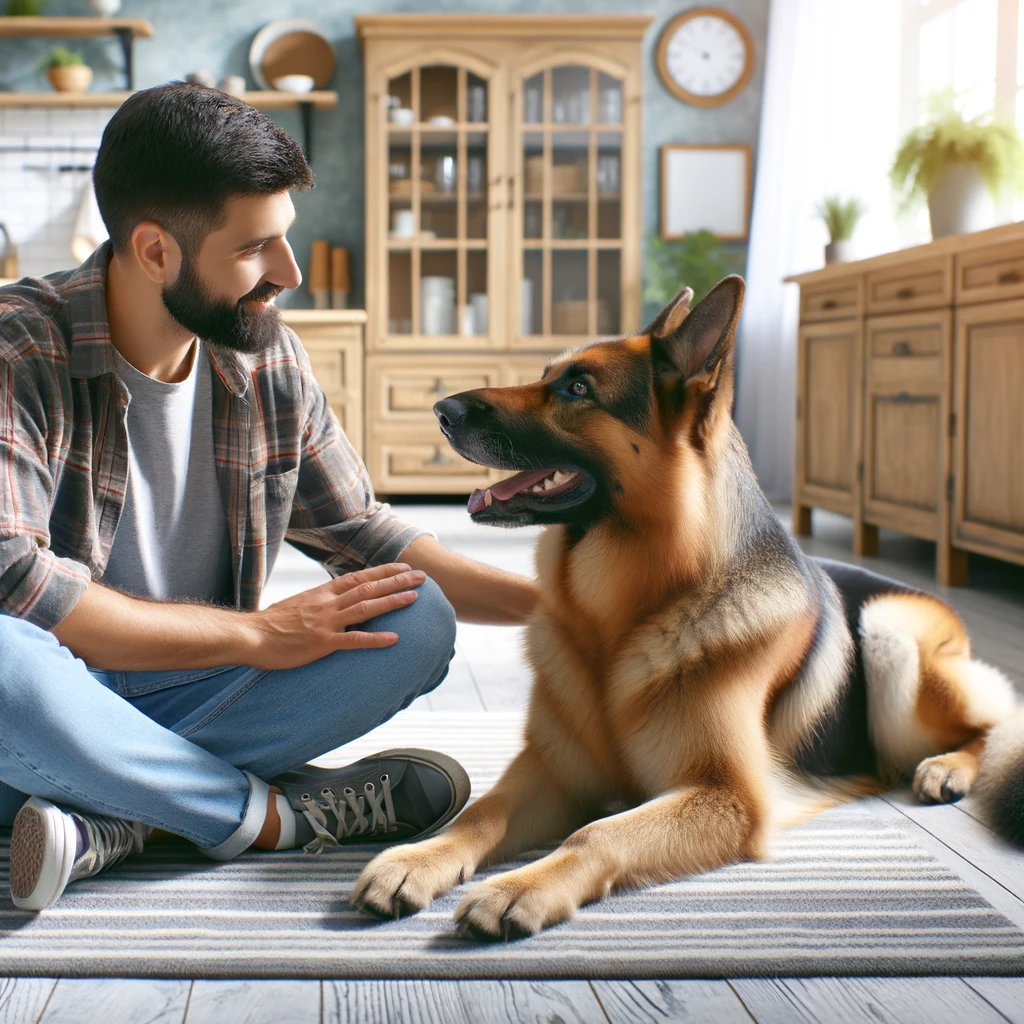Do German Shepherds Turn On Their Owners

German Shepherds are known for their loyalty and protection, but there is a common misconception that they may turn on or attack their owners.
A well-behaved German Shepherd is unlikely to bite or turn on its owner.
There are certain situations where a German Shepherd might attack its owner, such as when the dog is fearful, unwell, or has been abused or neglected in the past.
Proper training, socialization, and care can help prevent such incidents.
Why German Shepherds Might Attack Their Owners: Unveiling the Causes
Understanding why a German Shepherd might attack its owner is crucial for any dog owner.
Explores various reasons behind such rare but serious incidents, shedding light on this aspect of German Shepherd behavior.
- Lack of Training and Socialization: Proper training and socialization are essential for a well-behaved German Shepherd. Without these, the dog may develop aggressive tendencies. Early socialization with different people and environments helps them learn appropriate behaviors.
- Fear or Defensive Aggression: A German Shepherd might attack if scared or threatened. Abrupt movements, unfamiliar situations, or rough handling can trigger a fear response. Understanding and respecting a dog’s space and boundaries is essential.
- Pain and Medical Issues: Health issues, especially those causing pain, can make a German Shepherd more likely to lash out. Conditions like arthritis, hip dysplasia, or dental problems can be culprits. Regular health check-ups can help identify and manage such issues.
- Inadequate Exercise and Mental Stimulation: These active and intelligent dogs need ample exercise and mental stimulation. A lack of physical activity and mental challenges can lead to frustration, which might manifest as aggression.
- Protective or Territorial Behavior: German Shepherds have strong protective instincts. They may react if they perceive a threat to themselves or their family, including their owner. Training helps them distinguish between typical and threatening situations.
- Improper Handling or Abuse: Harsh or abusive treatment can lead to a German Shepherd acting out. Positive reinforcement and gentle handling are essential in fostering trust and a healthy owner-dog relationship.
- Genetic Predisposition: In rare cases, aggression in German Shepherds can be linked to genetic factors. Researching a dog’s lineage and temperament can provide insight into their behavioral tendencies.
Handling a German Shepherd Attack: Essential Steps for Safety
While German Shepherds are generally loyal and well-behaved, there might be rare instances when a personal German Shepherd attacks its owner.
Knowing how to handle such a situation is essential for your safety.
- Stay Calm: If your German Shepherd becomes aggressive, stay calm. Avoid making loud noises or sudden movements, as these can further agitate the dog.
- Do Not Run: Running away may trigger the dog’s chase instinct, escalating the situation. Instead, stay still, avoid eye contact, and avoid engaging with the dog.
- Protect Yourself: If the dog attacks, protect your face, throat, and vital areas. Use objects like a jacket or a bag to shield yourself if possible.
- Distract the Dog: Try to distract the dog with an object, like a toy or a piece of clothing. Throwing something might divert the dog’s attention, giving you a chance to move away.
- Back Away: If the dog calms down or appears distracted, back away. Do not turn your back on the dog, which could provoke another attack.
- Seek Medical Attention: If you are bitten or injured, seek medical attention immediately. Dog bites can lead to infections and other medical complications.
- Consult a Professional: After a German Shepherd attacks, it’s essential to consult a professional dog trainer or a veterinarian. They can help determine the cause of the aggression and guide the prevention of future incidents.
- Review Your Dog’s Routine: Consider if any changes in the dog’s routine, environment, or health could have contributed to the attack. Addressing these factors can help prevent further issues.
What to Do If a German Shepherd Bites You
If a German Shepherd bites you, cleaning the wound immediately with soap and water is essential to reduce the risk of infection.
You should seek medical attention, as dog bites can lead to complications like infections or serious injuries.
Additionally, it’s crucial to report the incident to the appropriate authorities and consult with a veterinarian or a dog behavior specialist to understand the cause of the dog’s aggression.
Understanding German Shepherd Behavior Towards Children
German Shepherds, like any dog breed, have the potential to attack if they are not trained or socialized.
There have been instances where German Shepherds have attacked children, often due to a lack of proper training or mishandling.
These attacks can occur if the dog feels threatened, is in pain, or is not accustomed to being around children.
German Shepherd owners must ensure their dogs are well-socialized with children from a young age.
Additionally, children should be taught how to interact with dogs to prevent aggressive reactions.
Managing Aggression in German Shepherds
Consistent training and socialization from an early age are essential to control a German Shepherd’s aggressive nature. Establishing yourself as a calm and assertive leader helps in managing your behavior.
Regular exercise and mental stimulation are crucial to prevent frustration and aggression. If aggression persists, consulting a professional dog trainer or behaviorist is advisable for tailored guidance and intervention.
Additionally, regular veterinary check-ups can ensure no underlying health issues contribute to aggression.
Conclusion: Building a Safe Relationship with Your German Shepherd
It is vital to understand and address the potential reasons why a German Shepherd might turn aggressive towards its owner.
While German Shepherds are loyal and protective, factors like inadequate training, fear, health issues, lack of exercise, and genetic predisposition can lead to aggressive behavior.
Ensuring proper training, socialization, and care can reduce the risk of such incidents. Creating a safe and trusting environment for your German Shepherd is crucial, where their physical and psychological needs are met.
By doing so, you can enjoy a harmonious and secure relationship with your loyal companion, reinforcing the strong bond that defines the human-German Shepherd connection.

I’m Martin, and I grew up in the super cool city of Seattle. You know, the place with all the incredible mountains and forests? Yeah, that’s my playground!
Ever since I was little, I’ve been all about nature. I used to wander around the woods with a notebook, doodling all the cool plants and animals I’d find.
